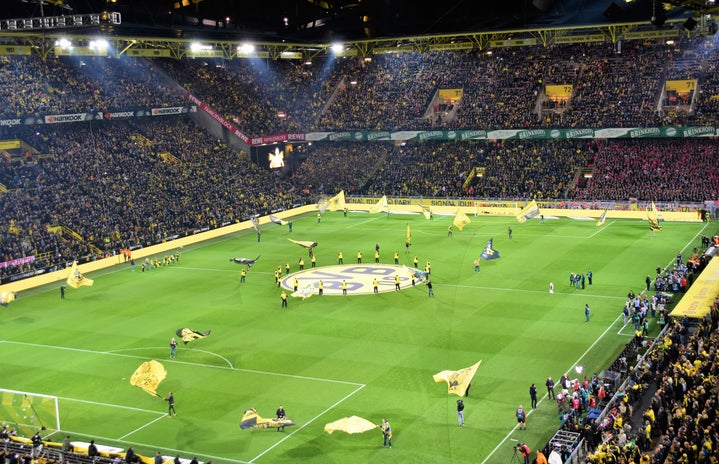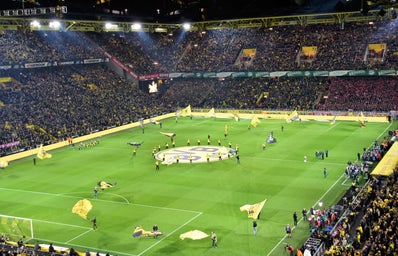Article by Aya Hussein
The 22nd edition of the FIFA World Cup kicked off on Nov. 20 in Doha, Qatar. After suffering three defeats to their Group A counterparts, Qatar became the first host nation to be knocked out in the first round without a single point.
The World Cup is the biggest sporting event amassing billions of views worldwide. The quadrennial festival of soccer brings together not just the fans of the 32 teams competing in the finals, but also fans from around the world.
However, the start of this particular edition of the World Cup had been dampened by much controversy, specifically surrounding the host country itself.
Human Rights Controversies
In 2021, The Guardian did an investigation into the working conditions of the migrant workers in Qatar who were building the brand new stadiums as well as other infrastructure projects.
The report found that allegedly 6,500 migrant workers, mainly from countries such as India, Nepal, Bangladesh, etc., had died. The causes of death included falls from height, heat stress from working in harsh temperatures and suicide, according to the Guardian. The notion was that Qatar and FIFA did not do enough to ensure safe conditions for the migrants who had to work on very big projects in very little time.
Qatar is also a very religiously conservative country, which means that there are many different rules that they have that are considered to be human rights violations, which has led to backlash from many people worldwide.
Qatar’s “penal code” criminalizes homosexuality and makes it punishable by harsh prison sentences and harrassment for the LGBTQ+ community in the country. Any symbolism of support for the LGBTQ+ community has been banned, according to NPR.
FIFA President Gianni Infantino and General Secretary Fatma Samoura wrote a letter to the participating national teams telling them to “not allow football to be dragged into every ideological or political battle that exists,” and they claimed that everyone would be welcome in Qatar, according to Sky Sports.
This came after many countries, particularly in Europe, decided to speak out against Qatar. It was rumored that many of the captains were going to wear rainbow armbands with the phrase “One Love” written on it to show solidarity with the LGBTQ+ community. However, most of them decided not to follow through when FIFA threatened to give them yellow cards if they did, according to The Washington Post.
Denmark, one of the most vocal nations against the hosts, had decided, with their shirt sponsor Hummel, to create all-red, all-white and all-black kits as a statement for the thousands of migrant workers who lost their lives, according to ESPN.
FIFA’s Corruption
On Nov. 9, Netflix released a four-episode documentary series entitled “FIFA Uncovered” on all of the issues of corruption within the organization throughout its existence.
Guardian journalist and author of “The Fall of the House of FIFA” David Conn discussed in the documentary how, because of the money and image-building that the World Cup provides, FIFA’s power to decide who got to host the competition gave them leverage over these nations, to the point where world leaders were heavily involved in the advertising their countries to FIFA.
“That power is a trap for corruption,” Conn said in the documentary.
The FIFA Executive Committee involved members of each continental confederation of soccer and they were the ones who voted on who would host the World Cup. It was referred to as a “world power” by former FIFA Executive Committee member Michel D’Hooghe.
When the World Cup’s host countries in 2018 and 2022 were decided to be Russia and Qatar respectively, the world was shocked.England and the United States had much better bids in terms of being better equipped to host due to the ready-made stadiums and infrastructure, as well as them being held in higher regard as footballing nations, according to the documentary.
Numerous geopolitical transactions involving various things such as oil deals, airplanes, football clubs, television rights, etc. were allegedly made between Qatar and other countries in exchange for Executive Committee votes to help Qatar win their World Cup bid. These allegations were from whistleblowers, secretaries, as well as former and current executives, who were involved in FIFA. This led to public outcry as people accused FIFA of taking bribes, which was not out of line with accusations against them throughout their long history. FIFA officials who were involved denied all allegations, according to the documentary.
Various wire transfers were found by the US Justice Department after they subpoenaed FIFA’s bank in Switzerland. They found mountains of evidence through that, and recorded conversations, to prove that FIFA officials were involved in crimes such as money laundering, tax evasion, bribery, etc. which created widespread systemic corruption for over 20 years. They indicted 14 high-profile FIFA officials and arrested many of them on May 27, 2015, according to the documentary.
FIFA’s reputation was largely damaged by the bribery scandals which is a large reason why there is so much controversy surrounding Qatar, Russia and the process of bidding of World Cup hosts as a whole.
The documentary also discussed the idea of “sport washing,” explained as using sports to sugarcoat wrongdoing. According to Conn, despite the fact that organizations such as FIFA claim to not be political, they allow themselves to be bought by regimes with human rights issues instead of using the power of sport to take a stand against that.
These instances brought back the long-existing dialogue surrounding the importance of discussing human rights and politics in sports. Even though many may not want to believe it, athletes and sports teams have platforms that can bring awareness to these issues, and in turn make these highly-beloved sports more inclusive for all those who want to take part.


